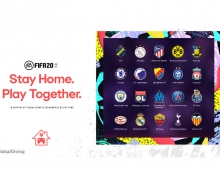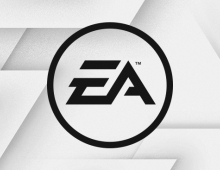
Electronic Arts Sues Zynga For Copying 'The Sims Social' Game
Electronic Arts has filed a lawsuit on behalf of its Maxis Label against Zynga for infringing EA?s copyrights to its Facebook game, The Sims Social.
In the complaint, which was filed in the United States District Court for the Northern District of California on August 3, 2012, EA claims that in Zynga?s recently-released Facebook game The Ville, Zynga has willfully and intentionally "copied and misappropriated the original and distinctive expressive elements of The Sims Social in a violation of U.S. copyright laws.
The Sims Social, launched in August 2011, brought the distinctive universe of EA's populat franchise, The Sims, to the social gaming audience on Facebook. An instant hit, The Sims Social rapidly gained tens of millions of users, and maintains a current user base of several million active players on Facebook.
Lucy Bradshaw, General Manager of EA?s Maxis Label, commented on the lawsuit in a blog posted to EA?s website, www.ea.com:
"As outlined in our complaint, when The Ville was introduced in June 2012, the infringement of The Sims Social was unmistakable to those of us at Maxis as well as to players and the industry at large. The similarities go well beyond any superficial resemblance. Zynga?s design choices, animations, visual arrangements and character motions and actions have been directly lifted from The Sims Social. The copying was so comprehensive that the two games are, to an uninitiated observer, largely indistinguishable. Scores of media and bloggers commented on the blatant mimicry.
"This is a case of principle. Maxis isn't the first studio to claim that Zynga copied its creative product. But we are the studio that has the financial and corporate resources to stand up and do something about it. Infringing a developer's copyright is not an acceptable practice in game development. By calling Zynga out on this illegal practice, we hope to have a secondary effect of protecting the rights of other creative studios who don't have the resources to protect themselves.
"Today, we hope to be taking a stand that helps the industry protect the value of original creative works and those that work tirelessly to create them.?
Zynga, the creator of "Farmville" and "Cityville," did not comment.
The Sims Social, launched in August 2011, brought the distinctive universe of EA's populat franchise, The Sims, to the social gaming audience on Facebook. An instant hit, The Sims Social rapidly gained tens of millions of users, and maintains a current user base of several million active players on Facebook.
Lucy Bradshaw, General Manager of EA?s Maxis Label, commented on the lawsuit in a blog posted to EA?s website, www.ea.com:
"As outlined in our complaint, when The Ville was introduced in June 2012, the infringement of The Sims Social was unmistakable to those of us at Maxis as well as to players and the industry at large. The similarities go well beyond any superficial resemblance. Zynga?s design choices, animations, visual arrangements and character motions and actions have been directly lifted from The Sims Social. The copying was so comprehensive that the two games are, to an uninitiated observer, largely indistinguishable. Scores of media and bloggers commented on the blatant mimicry.
"This is a case of principle. Maxis isn't the first studio to claim that Zynga copied its creative product. But we are the studio that has the financial and corporate resources to stand up and do something about it. Infringing a developer's copyright is not an acceptable practice in game development. By calling Zynga out on this illegal practice, we hope to have a secondary effect of protecting the rights of other creative studios who don't have the resources to protect themselves.
"Today, we hope to be taking a stand that helps the industry protect the value of original creative works and those that work tirelessly to create them.?
Zynga, the creator of "Farmville" and "Cityville," did not comment.





















